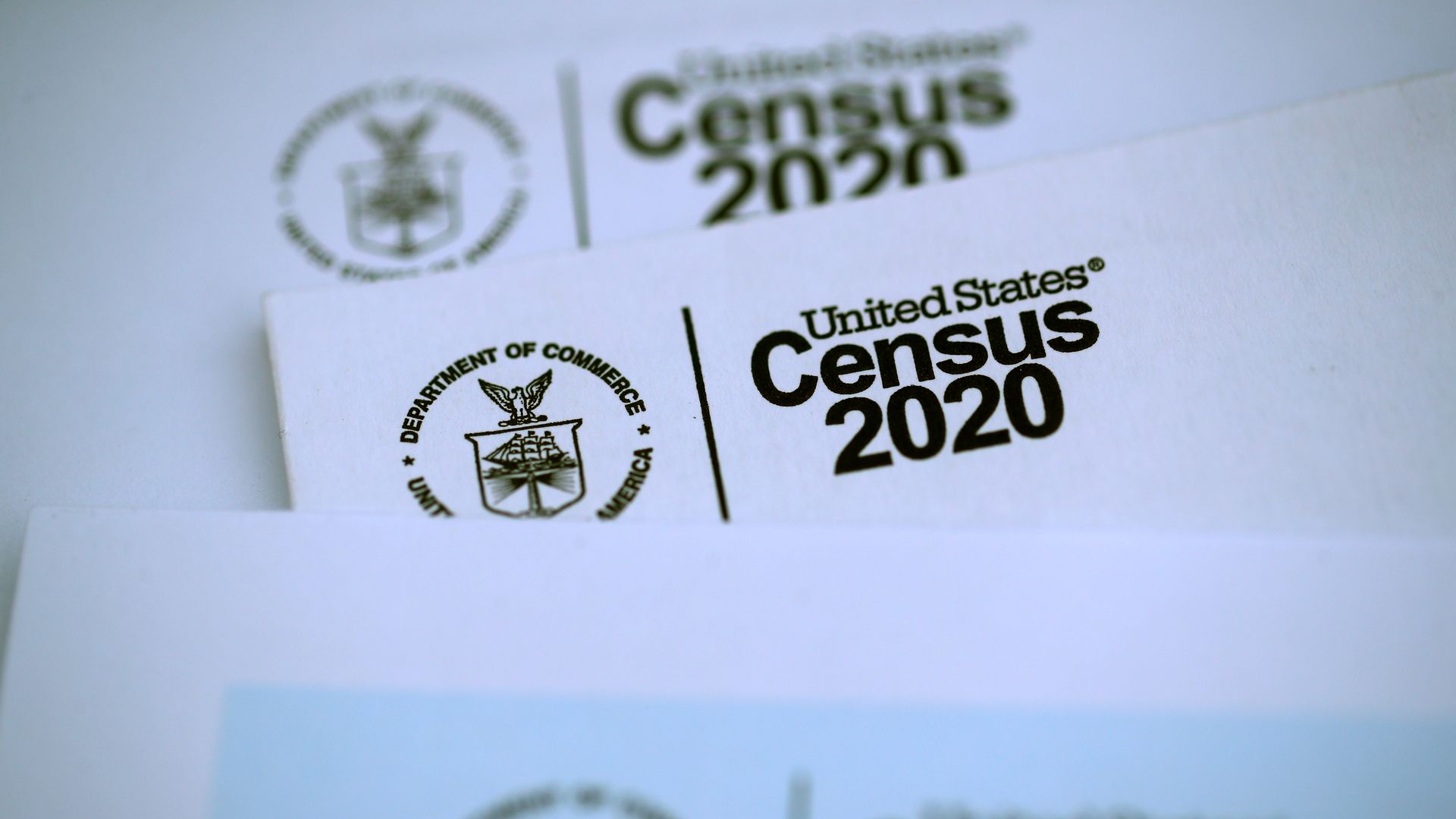Ohio sues Census Bureau over delay in releasing redistricting data
Add Axios as your preferred source to
see more of our stories on Google.

Photo: Justin Sullivan/Getty Images
Ohio on Thursday sued the Census Bureau over its decision to delay the release of redistricting data by six months.
Driving the news: Citing the coronavirus pandemic, the Census Bureau announced earlier this month that it will not release the data states use to draw legislative maps until the end of September. The deadline was previously March 31.
- The bureau also announced it would deliver the data for all states at once — not on different dates as has been done in the past.
- The later date gives states less time to draw maps, get feedback, resolve the ensuing lawsuits and enact new plans in time for elections, Axios' Stef Kight reported.
What they're saying: “The federal government has chosen to drag its feet by delaying the release of census data instead of following the law,” Ohio Attorney General Dave Yost said in a news release Thursday.
- "The people of Ohio have found ways to meet their responsibilities throughout the COVID-19 pandemic — adapting how we run businesses, caring for loved ones, home schooling children — why should the government create a double standard?” he added.
- According to the lawsuit, the delay in the release of the data "means that the decennial census data will not be available to the State of Ohio as it works to complete its redistricting process by constitutionally prescribed deadlines."
- "The commission charged with determining the state legislative districts, for example, must finalize its work by September 1, 2021. The unavailability of decennial census data irreparably harms the State," the complaint adds.
The Census Bureau said it does not comment on pending litigation and directed Axios to its Feb. 12 news release on the latest timeline.
- "COVID-19-related delays and prioritizing the delivery of the apportionment results delayed the Census Bureau’s original plan to deliver the redistricting data to the states by March 31, 2021," the bureau said on Feb. 12.
- It added that in "preparation for the delivery of redistricting data products, the Census Bureau has been in close coordination with each states’ official nonpartisan liaisons to understand the impacts of the delayed delivery on individual states."
Go deeper: Gerrymandering is about to get even more chaotic
